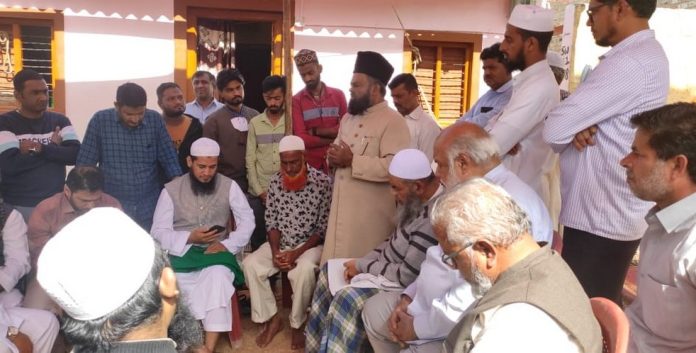– Mohammed Atherulla Shariff
Various Muslim organisations with their different respective agenda coming together and working for a common cause for three decades is worth celebrating these days. The grim situation that arose after the demolition of Babri Masjid prompted heads of some Muslim organisations in Karnataka to strategize differently to tackle the menace.
A platform called Khadiman-e-Mulk-o-Millat, meaning servants of the nation and community was planked in 1993. Which was later renamed as Karnataka Muslim Muttahida Mahaz i.e. Karnataka Muslims’ united front. The motto was to strengthen the secular forces especially on the political front and save the country and community from the divisive forces. Since the organisations that had resolved this were apolitical in nature and their common agenda wasn’t political, the absence of vested interest is their strength obviously.
The state chapters of national level organisations such as Jamaat-e-Islami Hind, Jamiat Ulama-i-Hind, Sunni Jamiatul Ulama, Jamiat Ahle Hadees and other state and district level federations like Muslim Muttahida Council, Bijapur; Muslim Okkuta, Udupi; and Central Muslims Council Mangalore also joined later. Now it is a full-fledged confederation.
The agenda is restricted strictly to guide the voters during election times. Any sort of overlapping in the Mahaz’s activities with that of the constituent bodies’ is consciously avoided. The principle adopted is minimum agenda maximum cooperation.
In order to shortlist and identify the strong secular candidate Mahaz makes a thorough study of the ground realities. Interactions are held with cross section of the society in each constituency to ascertain the currents and undercurrents prevailing there. Community-wise electors’ behavior in previous elections, anti-incumbency factor and history of the major contenders are also taken into consideration.
Impact of national or state level incidents are also measured. Other civil society organisations that are engaged in similar kind of service are also consulted and the findings are cross-checked and necessary changes are made. In all the Assembly and Parliamentary elections till now people have voted mostly as per the tactful pattern set up by Mahaz. So far, the assessment of the Mahaz has been 80 to 90% correct.
The parameter of success is that the identified candidate should win or at least secure second position, since Mahaz role is limited to identifying the ‘strong secular’ candidate. If the identified candidate comes third then only the assessment is considered incorrect. But factors that are out of the reach of Mahaz also have considerable role to play in the failures such as infightings in the party, poor campaign by the candidate, caste factor, etc. But for such short comings, Mahaz has set many milestones.




